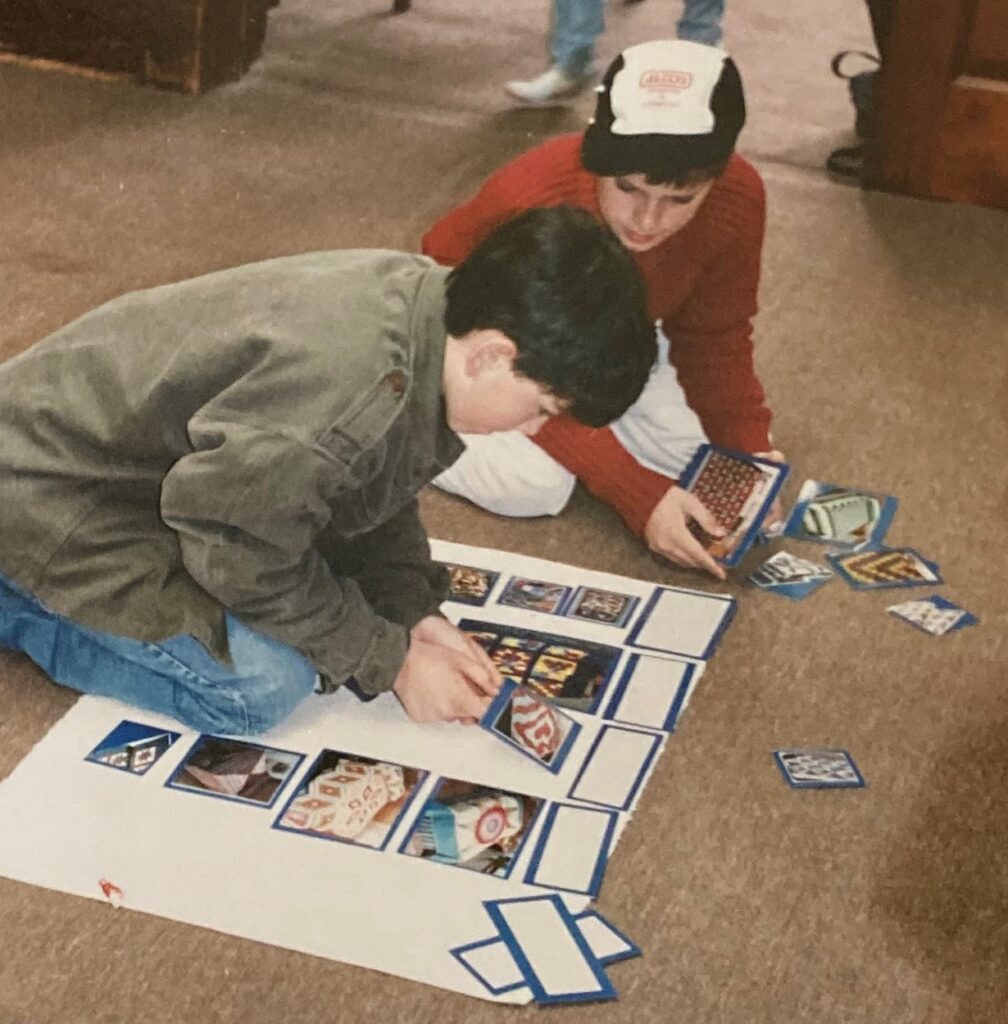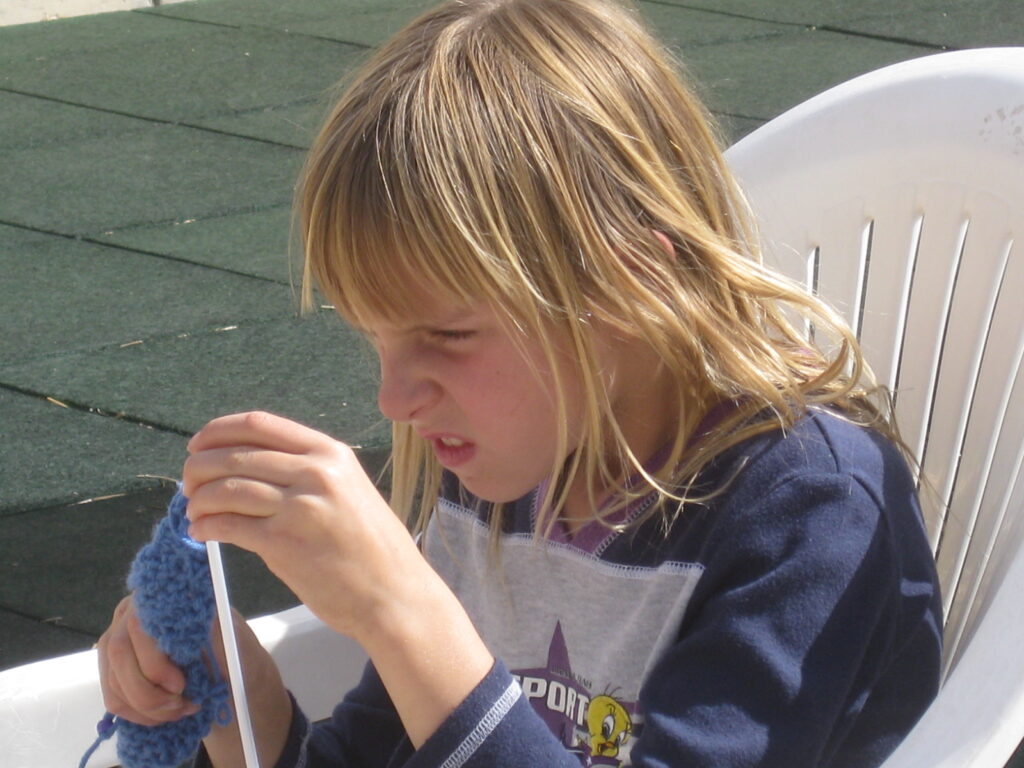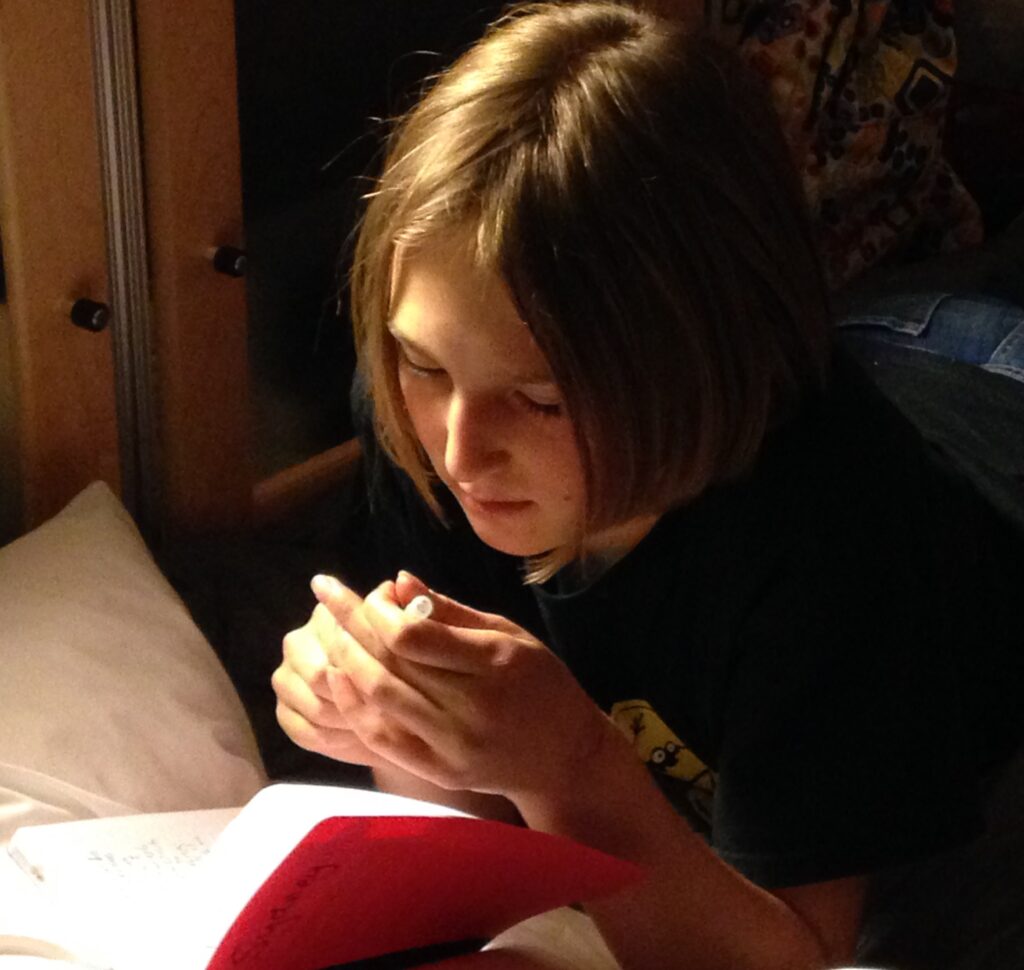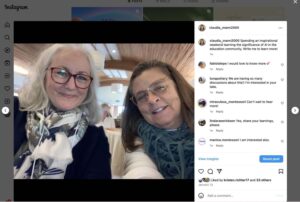“An education capable of saving humanity is no small undertaking; it involves the spiritual development of man, the enhancement of his value as an individual, and the preparation of young people to understand the times in which they live.”
Dr. Maria Montessori | Education and Peace
Maria Montessori didn’t leave secondary guides a lot to go on. Limited to just three short essays included at the end of From Childhood to Adolescence, Dr. Montessori shared a vision of a school structure for children ages 12 to 18 that is vastly different from traditional programs, especially in the USA. She recommended a boarding school located in a remote area where students could interact with the natural world through farming, running a hostel, developing genuine entrepreneurial endeavors, and creating a museum of sorts to demonstrate their learning. It’s a tall order. But as she says, it is “no small undertaking.”
Of all the reasons I appreciate the Montessori method, it is the lofty goal of “saving humanity” that I revere most. I’ve witnessed countless examples of a child who has grown and flourished within the Montessori classroom at all the ages.

I’ve watched the 9-month-old infant carefully raise a tiny, tiny glass to their lips, skipping the bottle or sippy-cup steps considered a necessity for the weaning process of the past. Then, as soon as they can stand securely, they also learn to deposit their cup and dishes into the bin, clear the table and use a sponge to wipe their space clean.
Toddlers, walking independently now, learn to rely on their body’s messages to help them use the toilet successfully. They handle the “wet events” by going to the changing area, finding their bin, gathering clean clothes, changing out of the wet ones, and depositing them into a plastic bag to go home at the end of the day. Diapers, a hindrance to feeling their wet event, are absent from many authentic Montessori classrooms and homes as an aid to the learning that allows for independence of this critical “grown-up” skill.

With each passage to a new stage of development, children are given the opportunity to reach their full potential as the adult guides remove the hindrances to natural growth. Through curiosity and encouragement, with freedom to explore, experiment, and perfect the objects of their desires, their accomplishments lead to confidence and creativity. In the elementary class, guides use the Great Lessons to open the entire scope of the universe, inspiring students through story, but piquing their curiosity by sharing the interdependent worlds of all the traditional disciplines connected through the vision of Cosmic Education.

When the students arrive in the secondary class, a completely new world of possibilities lies before them. Here, their awkward entry into young adulthood with gangly bodies beginning to blossom into puberty is met with the work of real activity: farming when possible, but certainly gardening, small animal care, cooking, sewing, handwork of all types, auto mechanics, machinery repair, woodworking…anything goes as long as the student is drawn to it. The “work that never sleeps” is a business or farm that needs constant tending, developing a sense of accountability and responsibility for something other than themselves. They learn that the mathematics they learned in elementary can have real-world applications that must be used with care and accuracy. Yes, there are academic connections, but most often these connections relate to some aspect of their real-world work.
Guides for these young people know that the goal is valorization: finding one’s place in the world and knowing that you are making contributions that matter. Their increasing confidence is based on the competencies they’ve gained through years of carefully guided transformations. Through it all, they’ve gained knowledge of the changing world and learned they can manage their minds, their bodies, their emotions, and their hearts to make it a better place.
The saviors of humanity are alive and well and growing up in a Montessori program near you!





